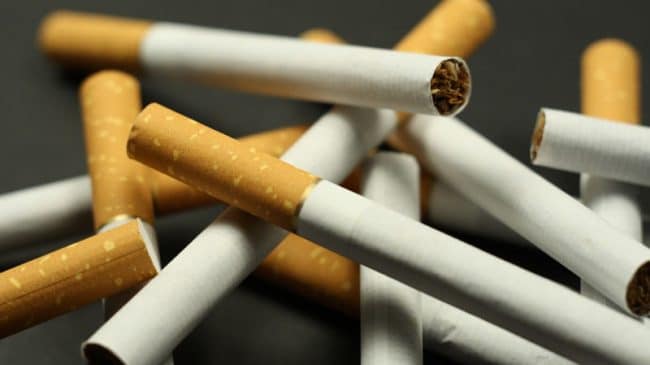Soaring cigarette taxes are approaching prohibitive levels in many states inducing vast black markets for tobacco across the country.
Data from the Mackinac Center for Public Policy shows New York leading the nation for the highest amount of inbound smuggling, with a whopping 55 percent of cigarettes smoked estimated to have come from out of state in 2014.
After an increase in the cigarette tax from $2.51 per pack to $3.51 in 2013, Massachusetts experienced a surge in cigarette smuggling of 12 percent in 2014, with smuggled smokes making up 29 percent of all cigarettes consumed.
Cigarette taxes are an increasingly popular tool in the legislators’ armory. Officials can hike taxes on an unpopular minority giving themselves more money to spend while posing as defenders of public health.
Cigarette tax rates increased in 31 states and the District of Columbia between 2006 and 2014, according to the Tax Foundation. But while taxes have risen across the country, a host of unintended consequences have followed suit.
“Excessive tax rates on cigarettes approach de facto prohibition in some states, inducing black and gray market movement of tobacco products into high tax states from low tax states or foreign sources,” say Tax Foundation economists Scott Drenkard and Joseph Henchman.
The massive differences in cigarette taxes between states has proved a golden opportunity for criminals to profit by smuggling smokes from low-tax states to sell in high-tax states.
“Growing cigarette tax differentials have made cigarette smuggling both a national problem and in some cases, a lucrative criminal enterprise,” say Drenkard and Henchman.
Nowhere can this be more clearly seen than in New York, with the highest state cigarette tax in the country at $4.35 per pack. New York City has an additional local tax of $1.35 per pack.
According to the Mackinac Center’s data, smuggling in New York has risen 62 percent since 2006.
New York’s draconian tax rates have enticed many smokers to turn to the black market, travel across state lines to buy cigarettes or purchase more affordable brands such as Seneca from Native American outlets.
Consumer resistance to exorbitant tax rates as well as falling smoking prevalence has had a big impact on New York’s finances. New York State Comptroller Thomas DiNapoli reported in 2015 that New York’s revenue from cigarette taxes plunged by $400 million over the previous five years.
A study conducted by the National Academies of Sciences, Engineering, and Medicine found the state lost a hefty $1.3 billion in uncollected taxes each year because smokers opted for cheaper alternatives.
Not only do high cigarette taxes aid black markets and criminals, but they disproportionately punish poorer smokers.
The New York State Department of Health estimates that low-income smokers, defined as individuals in households earning less than $30,000 a year, spent 23.6 percent of their annual household income on cigarettes in 2010-2011: a rise of 12 percentage points from 2003-2004.
Guy Bentley (@gbentley1) is a contributor to the Washington Examiner’s Beltway Confidential blog. He is a consumer freedom research associate at the Reason Foundation and was previously a reporter for the Daily Caller.

